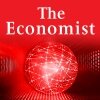Recent episodes from Us News | Science Discoveries
-
Published: Aug 22, 08Princeton psychology researchers have developed a computer program that allows scientists to understand better then ever before what it is about certain human faces that makes them appear either trustworthy or fearsome.
-
Published: Aug 20, 08A 'Crantastic Voyage' into the urinary tract to see just how cranberry juice works on infection. Researchers at Worcester Polytechnic Institute reveal that the juice changes the properties of bacteria that cause urinary tract infection and creates an energy barrier that prevents them from adhering to cells.
-
Published: Aug 5, 08In a major leap that could transform solar power from a marginal energy source into a mainstream energy source, MIT researchers have overcome a major barrier to large-scale solar power: storing energy for use when the sun doesn't shine. Until now, solar power has been a daytime-only energy source, because storing extra solar energy for later use is prohibitively expensive and grossly inefficient. MIT researchers have hit upon a simple, inexpensive, highly efficient process for storing solar ener
-
Published: Jul 29, 08New research shows that vocal communication evolved from ancient fish species.
-
Published: Jul 24, 08The annoying blare of an ignored car alarm may become a sound of the past if a cooperative, muteable and silent network of monitors proposed by Penn State University researchers is deployed in automobiles and in parking lots.
-
Published: Jul 24, 08Cancer cells use tricks to hide from our body's immune system. One trick is to mask their presence in the body. Now, a bioengineer from Yale University has created cell-sized plastic spheres that both prep the immune system to recognize specific diseases and also increase the immune system's fighting force.
-
Published: Jul 15, 08University of Washington scientists have found that species living in the tropical centers of the world are likely to face greater peril from global warming than those species located in cooler climates, because their tolerance for temperature increases is much narrower.
-
Published: Jul 15, 08A mass grave of skeletons in southwestern Germany suggests that neighboring tribes from prehistoric times were prepared to kill their male rivals to secure their women.
-
Published: Jun 26, 08Americans grow happier as they grow older, according to social science researchers at the University of Chicago, whose 33-year study is one of the most thorough examinations of happiness ever done in America.
-
Published: Jun 26, 08A team of researchers, led by a Stony Brook University paleontologist, discovered the remains of what may be the largest frog ever to exist. The fossilized remains of this 16-inch, 10-pound ancient frog were found in Madagascar and link a group of frogs that lived 65-70 million years ago with frogs living today in South America.
-
Published: Jun 26, 08It was once thought that e-mail chain letters traveled to internet users in much the same way that disease spreads during an epidemic--people receive a message and then pass it on to those they come in contact with. However, new research from Cornell University and Carleton College suggests that e-mail chain letters travel in a less direct, more diffuse pattern than previously assumed.
-
Published: Jun 26, 08Air pollution from power plants and automobiles is diminishing the fragrance of flowers and thereby inhibiting the ability of pollinating insects to follow scent trails to their source, a new University of Virginia study indicates.
-
Published: Jun 9, 08Two researchers at Cornell University argue that children are more likely to tell the truth while under oath in court because their minds depend heavily on remembering what actually occurred, as opposed to adults, whose minds depend heavily on the meaning or interpretation of what occurred.
-
Published: Jun 9, 08Thanks to a touch-based interface developed at Carnegie Mellon University, computers that have long been used as tools in designing and manipulating three-dimensional objects may soon provide people with a way to sense or feel the texture of those same objects.
-
Published: May 20, 08A team of behavioral scientists from four major U.S. universities found that people who feel sad and self-focused are willing to pay more money for goods than those in neutral states of feeling.
Advertisement
Popular Podcasts
-
Health
-
Music
-
Health
-
Sports & Recreation
-
News
-
Sports & Recreation
-
Music
-
Music













